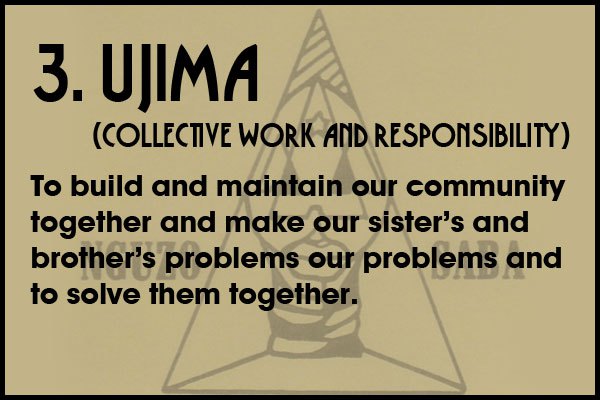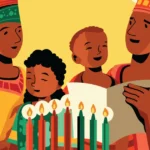Ujima is the third principle of Kwanzaa, a seven-day holiday celebrated by African Americans and people of African descent around the world. The word “ujima” means “collective work and responsibility” in Swahili, and it emphasizes the importance of working together in order to build strong communities and institutions.
One way to practice ujima is by recognizing that the ability to work together is essential for building the cultural and educational institutions that empower people. These institutions, such as schools, libraries, and cultural centers, provide people with the knowledge and skills they need to succeed. By working together to build and support these institutions, we can create the conditions that allow people to thrive.
Another aspect of ujima is the idea of mutual responsibility. This means that we should all take responsibility for our actions and the well-being of our communities. This could involve volunteering our time, donating money, or simply being there for others when they need help. By supporting each other and working together to address challenges, we can build stronger, more resilient communities.
In addition to building cultural and educational institutions and practicing mutual responsibility, ujima also emphasizes the importance of accountability. This means that we should hold ourselves and each other accountable for our actions, and strive to make things right when we make mistakes. By holding ourselves accountable, we can create a culture of trust and respect, which is essential for building strong, supportive communities.
In conclusion, the principle of ujima is a reminder of the importance of working together and taking collective responsibility for building strong, empowered communities. By building cultural and educational institutions and practicing mutual responsibility and accountability, we can create the conditions that allow people to thrive.





